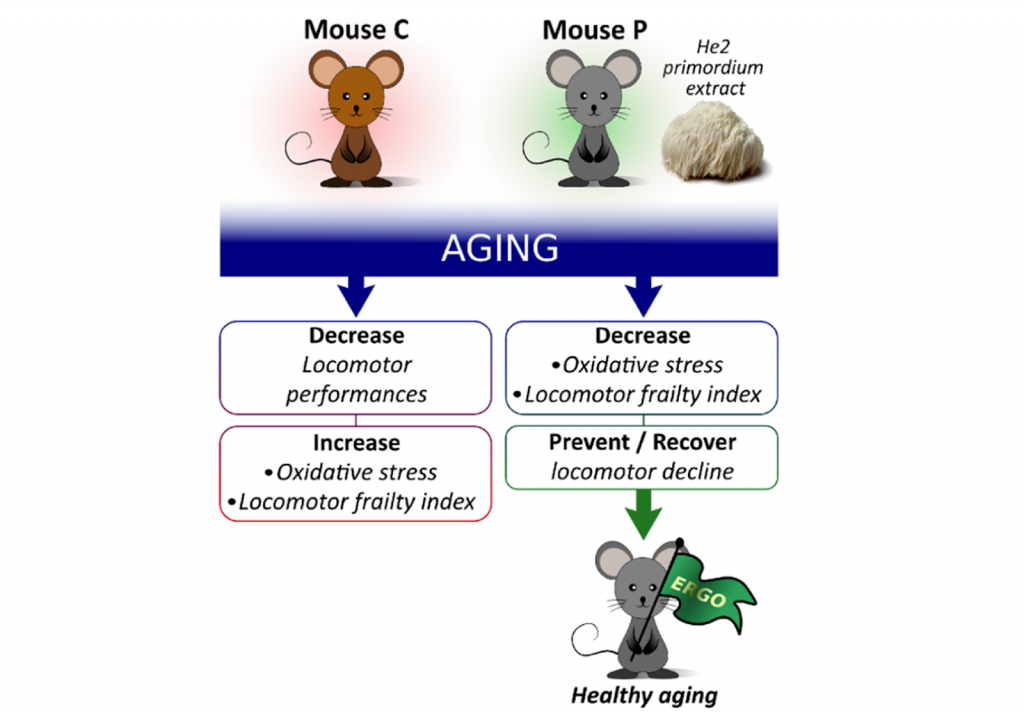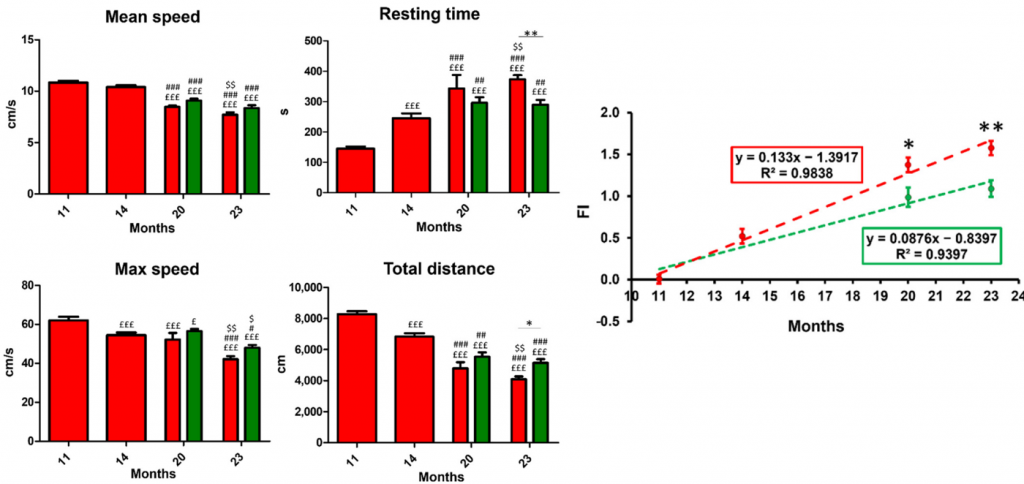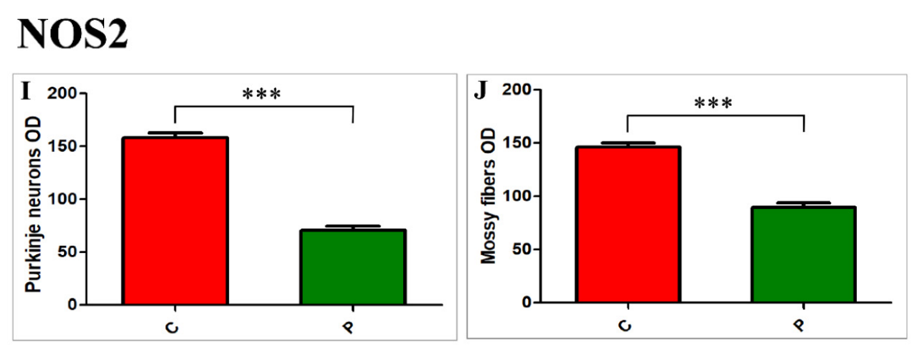Key Points:
- Aging mice supplemented with Lion’s mane mushrooms (He2) display significantly better physical performance.
- In the brains of aged mice, He2 reduces oxidative stress — cellular damage caused by excessive reactive oxygen species.
- The observed findings are likely attributable to ergothioneine (ERGO), a powerful antioxidant found in He2 at high concentrations.
Oxidative stress opens the door to a myriad of biological complications, including damage to proteins and DNA. While our cells harness antioxidant defenses capable of neutralizing oxidative stress-inducing compounds, time fights back, tipping the scales and leading to oxidants outnumbering antioxidants in the aging brain. As oxidative damage builds up with age, we become more susceptible to cognitive and physical decline. To revert these age-related impairments, scientists have turned to medicinal mushrooms containing high concentrations of ERGO, a longevity-linked compound that has been shown to boost the immune system.
In an article published in the journal Nutrients, Rossi and colleagues from the University of Pavia in Italy examine the effects of Lion’s mane mushrooms (He2), which are high in ERGO, on locomotor function and oxidative stress in the brains of aging mice. The Italian researchers show that supplementing mice with He2 (~1.3 mg/g) for eight months improves physical function and lowers frailty. What’s more, investigators found that the levels of oxidative stress-inducing compounds nitric oxide synthase 2 (NOS2) and cyclooxygenase 2 (COX2) were significantly lower in the brains of mice treated with He2. Taken together, the findings suggest that medicinal mushrooms with high ERGO concentrations can potentially contribute to healthy aging by mitigating oxidative stress and rescuing physical function.

He2 Boosts Physical Performance
Rossi and colleagues conducted spontaneous behavioral tests to evaluate the effects of He2 on physical performance in aging mice.The investigators placed11-month-old mice in an empty arena (63 x 42 cm) and monitored how they moved — locomotion. This included measurements speed, resting time, and total distance traveled. These assessments were repeated when the mice were 14, 20, and 23 months of age. Mice began receiving He2 via drinking water at 15 months of age, which translates to 51 human years. Results showed that treated mice exhibited significantly reduced resting time and increased total distance traveled, indicating enhanced locomotor performance. Although treated mice had higher mean and max speeds than control mice, the differences were not statistically significant.
Next, researchers compiled the results of the four locomotor parameters to calculate a frailty index (FI) score, representing locomotor deterioration. An FI score of 1.0 was the threshold to categorize mice as frail. The analysis showed that treated mice never broke the threshold for frailty while untreated mice had an FI score of 1.5, suggesting that He2 boosts physical performance in aging mice by reducing frailty.

He2 Decreases Oxidative Stress
To find whether He2 ameliorates oxidative stress in the aging brain, Rossi and colleagues looked at COX2 and NOS2 protein levels in various locomotion-associated brain regions known to be affected by age. Quantitative analysis revealed that COX2 and NOS2 were significantly lower in treated mice than control mice, suggesting that He2 limits oxidative stress in the aging brain. These findings corroborate previous studies that confirm ERGO’s ability to quench oxidative stress and attenuate harmful nitrogen species. Notably, given that COX2 inhibition has been previously reported to elicit neuroprotective effects, the findings demonstrate He2’s nootropic (brain-boosting) properties and highlight the potential role of He2 in combating neurological diseases.


Should Everyone Consume Medicinal Mushrooms?
On top of being delicious and nutritious, Lion’s mane mushrooms are easily accessible products that can immediately be implemented into our everyday diets. These potent nootropics with high concentrations of ERGO have also been shown to modulate inflammation, improve recognition memory, and stimulate neurogenesis – the production of new neurons. So, with a growing aging population where the majority of individuals experience some sort of cognitive or motor decline by the age of 60, it may be worthwhile to incorporate medicinal mushrooms to boost overall health.